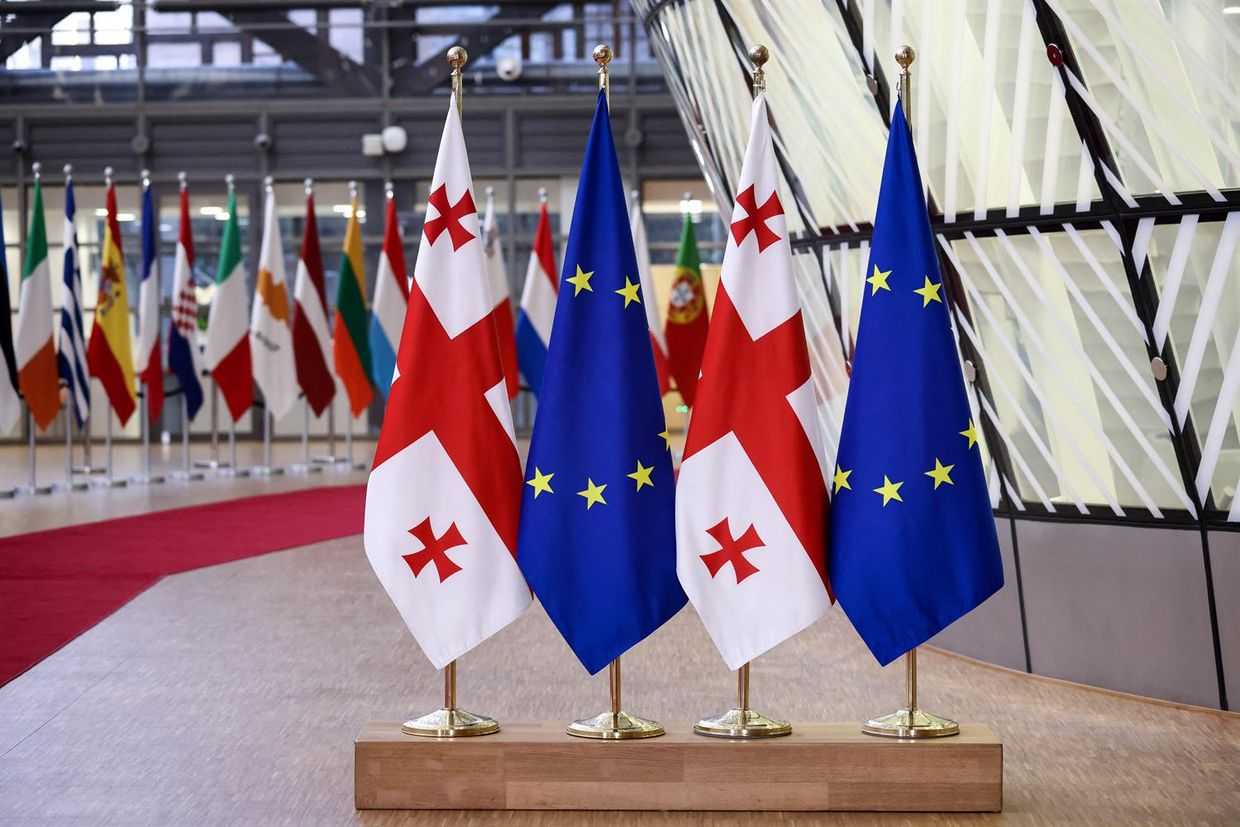
Georgian Prime Minister Irakli Kobakhidze has continued to downplay the importance of visa-free travel with the EU, claiming that the Georgian economy would have grown even faster without it. Meanwhile, the Georgian Orthodox Church has joined the government in criticising the European Commission’s recent recommendations.
The issue of visa-free travel with Europe and its potential suspension has become particularly pressing in recent days. The European Commission has issued eight recommendations to the Georgian government, including the repeal of restrictive laws, warning that failure to comply could result in the halting of the visa liberalisation regime in place since 2017.
The ruling Georgian Dream party, which for years celebrated visa-free travel as a major achievement, has responded by downplaying its importance and reducing it to a technical matter.
In an interview with the pro-government media outlet Rustavi 2 on Monday, Kobakhidze stated, ‘This is only about one thing — whether you’ll stand in line for a visa or not’.
‘In the UK [with which Georgia does not have visa-free travel], our citizens stand in line for a visa — it’s a technical issue. Of course, it’s inconvenient, but you get the visa and go to the UK’, he added.
Kobakhidze dismissed the idea that suspending visa liberalisation would impact Georgia’s economy as ‘empty speculation’. He not only denied any connection between the two, but went as far as to claim that lacking visa-free travel with Europe could actually benefit Georgia’s economy.
‘One downside of visa liberalisation is that it encourages migration […] Without visa liberalisation, many more of our citizens would have stayed in the country, which would have increased the labour force and directly contributed to further improvement in the pace of economic growth’, he added.
This is not the first time Kobakhidze has linked visa liberalisation to migration issues.
In 2023, Kobakhidze claimed that ‘had it not been for the visa-free travel regime with the EU, Georgia would have had a positive, rather than negative, migration balance between 2018 and 2021’.
Both then and now, he cited Lithuania and Latvia as examples to argue that visa liberalisation could encourage migration even within the EU, as people move to countries with stronger economies. At the time, critics dismissed Kobakhidze’s remarks and the way he presented the data as manipulative.
In Monday’s interview, Kobakhidze further stated that although visa-free travel has ‘no connection to the economy, [...] it is important for us to preserve this benefit for our citizens’.
‘Of course, it’s important that our citizens can travel visa-free to various European countries. Therefore, if there is anything we need to do on our part, we will do everything — within reasonable limits’, he added.

The Georgian Orthodox Church joins the criticism
After the European Commission’s letter was made public last week, officials from Georgian Dream repeatedly voiced criticism toward Brussels, equating the recommendations to blackmail.
The ruling party and its allies have placed particular emphasis on the EU’s demand to repeal the law on ‘family values and child protection’, which bans what ruling party calls ‘LGBT propaganda’, as well as same-sex marriage and gender-affirming medical treatment.
According to Parliamentary Speaker Shalva Papuashvili, ‘Brussels is telling us to follow a false ideology and say that a man can become a woman’.
On Monday, the Georgian Orthodox Church’s Patriarchate joined the criticism, noting that the recommendation to repeal the anti-queer law contradicts ‘God’s teachings’ and the EU’s past ‘commitments’.
The Patriarchate’s press office insisted that EU representatives ‘have always clearly stated’ that Georgia’s integration process into European structures was not connected to what the church called ‘promoting non-traditional lifestyles’.
As the statement further noted, ‘the provisions that directly or indirectly imply the repeal of laws protecting minors from LGBT propaganda causes great disappointment […]’.
Since Georgia secured EU candidate status in 2023, relations between Tbilisi and Brussels have plummeted, spurred on by a variety of actions taken by the ruling Georgian Dream party that are widely seen as eroding the country’s democratic institutions.
It included the adoption of several pieces of repressive legislation, as well as the widespread violations documented during the October 2024 parliamentary elections.
Relations fell further still the following month after the Georgian government announced it was freezing its EU membership bid, violently dispersing protesters against the decision and passing a new barrage of restrictive laws.
The EU, along with the US and the UK, have imposed a number of sanctions and other punitive measures in response.
Another move that has been floated is the suspension of Georgia’s visa-free access to the EU, which was originally granted eight years ago.
So far, the proposal has yet to come to fruition, although the EU Council has ruled that the visa-free status for Georgian diplomats should be revoked, a move seen as largely symbolic as Georgian diplomats can still travel with their normal passports.
Unlike passing sanctions, suspending visa-free status can be agreed on with just a qualified majority, meaning 55% of EU member states representing at least 65% of the total EU population.










